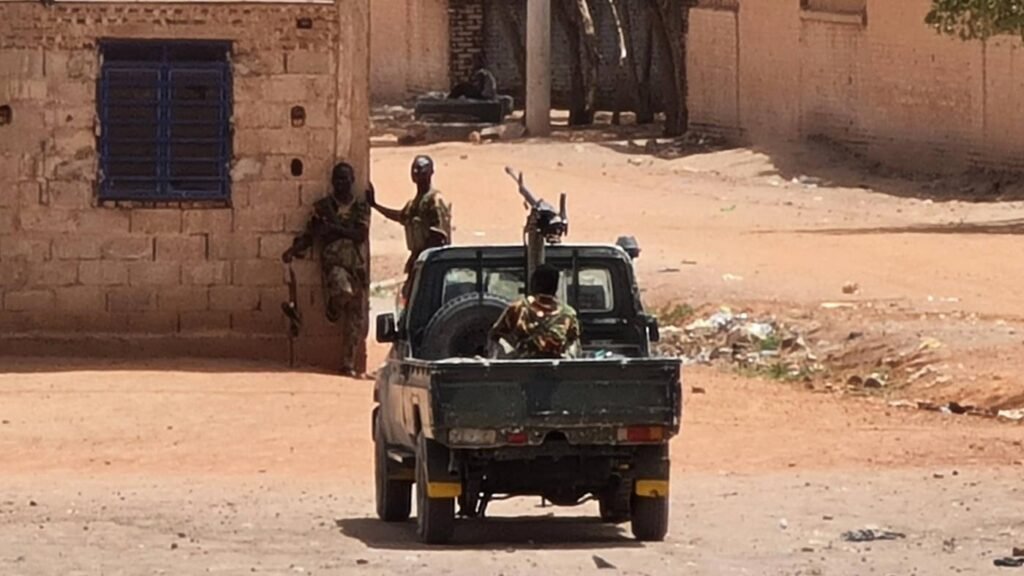
Sudan’s besieged el-Obeid running out of food, water and fuel.
The strategically vital Sudanese city of el-Obeid has been under siege by the paramilitary Rapid Support Forces (RSF) for more than 40 days, according to five local sources and a western military analyst who spoke to Middle East Eye about conditions in the capital of North Kordofan.
Water is not running from taps, food is running out, there was no mains electricity for a month, healthcare facilities have shut down, and fuel is only available at markets, where it is being sold for six or seven times its normal price.
With government employees not working and not being paid, most of el-Obeid’s working population is currently functionally unemployed.
While the Sudanese army has maintained control of its headquarters in the eastern half of the city, the RSF patrols the surrounding countryside and has established roadblocks at every main entry point into el-Obeid.
The paramilitary is looting vehicles that come in and out of the city and has established a tax on people moving between the countryside and the urban neighbourhoods.
With army general Abdel Fattah al-Burhan calling for Sudan’s citizens to take up arms against the RSF, the situation his forces face in el-Obeid is typical of that it faces elsewhere in the country: it has been mostly out-fought by the RSF, who have more combat experience, and it is seeking help.
Sources in el-Obeid said they feared Burhan’s decree would make an already bad situation worse.
Local witnesses also say the RSF was behind the looting of the World Food Programme’s (WFP) warehouses in el-Obeid, which took place at the beginning of June and put food assistance for more than 4.4 million people at risk. The looted goods were then transported by civilians to a market to be sold.
The market has been renamed “Dagalo”, after Mohamed Hamdan Dagalo, the RSF chief who is better known as Hemeti.
Meanwhile, one local eyewitness, a sociologist who fled Khartoum with his pregnant wife three weeks after the war between the army and the RSF started on 15 April, told MEE that members of the Sudanese Armed Forces (SAF) had accidentally killed civilians in el-Obeid while drunk.
Under siege
Sitting at the intersection of several roads connecting western and southern Sudan to the capital Khartoum, el-Obeid’s strategic significance has led to it being fought over since the start of the war, with the RSF siege intensifying in recent weeks.
In response, the army’s 5th infantry division, made up of fighters with combat experience, has maintained its headquarters, along with nominal control of the city itself.
But with the RSF surrounding the city and blocking entry with checkpoints, a western military analyst, who can’t be named for security reasons, told MEE that the army garrison had “exceeded expectations in defending the city limits, but will likely need reinforcements should RSF assaults continue”.
The RSF has established checkpoints along the western road to En Nahud, the northern road to Omdurman and the eastern road to Kosti, according to civilian and military sources in the area.
“The city has been totally besieged from all four directions by the RSF for more than 40 days, and the SAF is only watching while they protect the army headquarters in the city as well as the airport of el-Obeid,” Ahmed Ali, a leading member of the city’s resistance committee, told MEE.
The resistance committees were the driving force behind the revolution that removed former autocrat Omar al-Bashir in 2019 and have been organising the provision of basic needs for Sudan’s citizens since the most recent war began.
“The RSF is committing many human rights violations against civilians in the state of North Kordofan, as well as in other cities and villages. We can see that the majority of the state is in the hands of the RSF,” Ali said.
Source: Middle Easy Eye
Have a query? Contact Us
